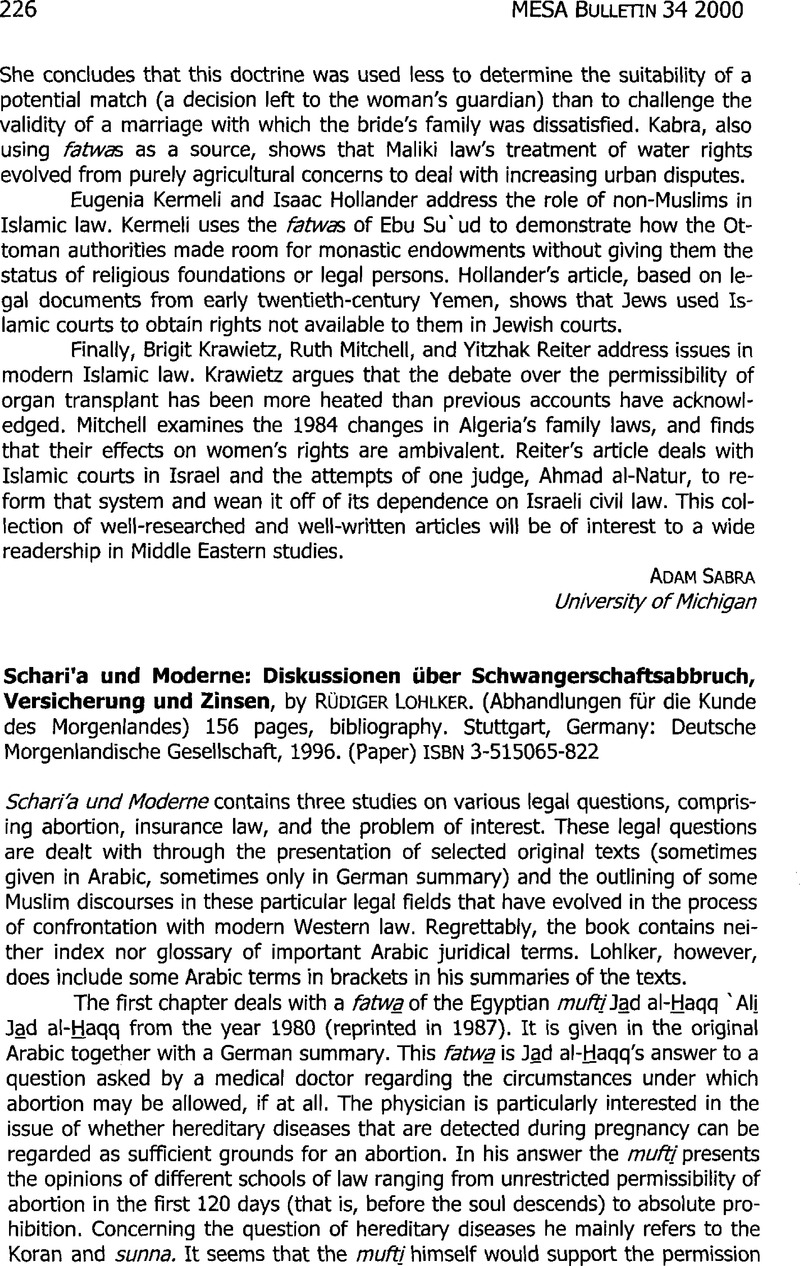No CrossRef data available.
Published online by Cambridge University Press: 09 March 2016

1 The arguments of Al-’Ashma̱wi̱ are interesting. He points out that riba̱ in pre-Islamic and early Islamic times led to the enslavement of debtors, as in the case of a debtor who was—according to a ẖadi̱th—sold by the Prophet as a slave. For the interpretation and dating of this interesting ẖadi̱th which is opposed to later Islamic law, see Schneider, Irene, Kinderverkauf und Schuldknechtschaft(Stuttgart, 1999), p. 74ff.Google Scholar which is an answer to Motzki, H., “Der Prophet und die Schuldner,” Der Islam 77(2000), p. 1ffCrossRefGoogle Scholar. Also see Schneider, Irene, “Narrativität und Authentizität: Die Geschichte vom weisen Propheten, dem dreisten Dieb und dem koranfesten Gläubiger,” Der Islam 77(2000): 84ff.CrossRefGoogle Scholar
To send this article to your Kindle, first ensure no-reply@cambridge.org is added to your Approved Personal Document E-mail List under your Personal Document Settings on the Manage Your Content and Devices page of your Amazon account. Then enter the ‘name’ part of your Kindle email address below. Find out more about sending to your Kindle. Find out more about saving to your Kindle.
Note you can select to save to either the @free.kindle.com or @kindle.com variations. ‘@free.kindle.com’ emails are free but can only be saved to your device when it is connected to wi-fi. ‘@kindle.com’ emails can be delivered even when you are not connected to wi-fi, but note that service fees apply.
Find out more about the Kindle Personal Document Service.
To save this article to your Dropbox account, please select one or more formats and confirm that you agree to abide by our usage policies. If this is the first time you used this feature, you will be asked to authorise Cambridge Core to connect with your Dropbox account. Find out more about saving content to Dropbox.
To save this article to your Google Drive account, please select one or more formats and confirm that you agree to abide by our usage policies. If this is the first time you used this feature, you will be asked to authorise Cambridge Core to connect with your Google Drive account. Find out more about saving content to Google Drive.